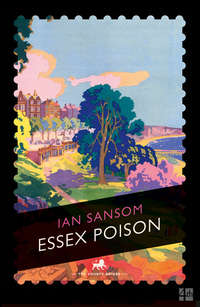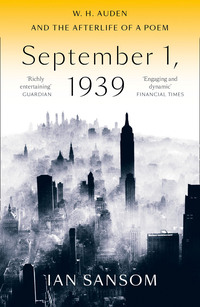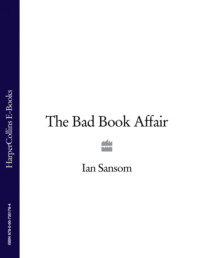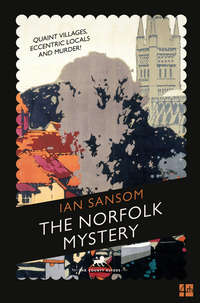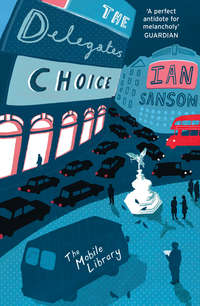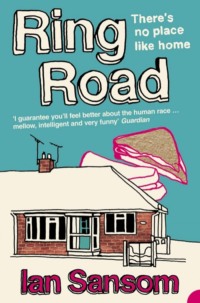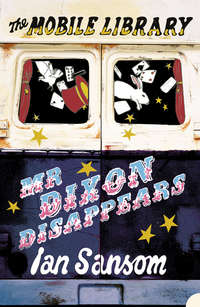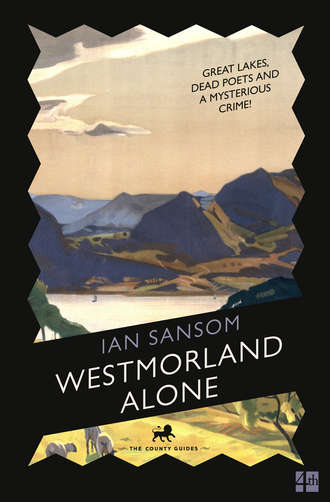
Полная версия
Westmorland Alone
I can imagine the journey that Miriam and Morley enjoyed on the way to Westmorland, the same journey as all our journeys: Morley seated in the back of the Lagonda, among his books and writing requisites, Hermes typewriter wedged into position on the portable desk, sharp pencils at his elbow and paper conveniently to hand, pouring endlessly forth like some magic fountain. His voluminous notes on the journey – including a ton or more of notebooks and index cards and papers for the putative book on the Great North Road, never published – are housed now, along with all his other manuscripts, in Norwich. There, in his favourite county, the ‘still centre’, the reader might recreate that journey from London to the Lakes, from the Whittington Stone at Highgate Hill, ‘memorial to Britain’s most benevolent citizen’, through the beauty of Welwyn village, home to Edward Young, author of Night Thoughts, and, according to Morley, echoing Dr Johnson, ‘perhaps England’s most defected genius’, and on and up past the famous Folly Gateway at North Mimms, stopping off for refreshments at the Roebuck at Broadwater, past the Caxton Gibbet, and on and on past Retford, Bawtry and Doncaster. Morley has often been described – and dismissed – as a mere antiquarian, a provincialist, a dull draftsman, a ‘topophiliac’, in the words of one particularly patronising critic in the Listener, devoted to places rather than to people, but he was also interested in the everyday lives of men and women, and in the chronological as well as the chorological: indeed, a part of his research for the Great North Road book includes dozens of typed pages on the history of the St Leger race, held annually since 1776, when it was won by a brown-bay filly sired by the mighty Sampson; the notes, like Morley, go on and on, and range wide and deep, a complete portrait of people in a landscape, a Brueghel in words. He was, in all his books, and certainly during my time with him compiling The County Guides, a celebrant of all that was living – though in reality our business was often with death.
My guess – though I can’t confirm it – is that it was probably Miriam who spotted the train in the distance. She wouldn’t have wanted us to beat her to Appleby. I can imagine her tossing back her head and stamping her elegant foot hard on the pedal. We must get there before him. Thank goodness she didn’t.
On the train I was showing the little girl how to work the camera. Her name was Lucy. She had a gap-toothed smile and freckles, little fat cheeks, and ringlets, and dark, dark eyes – a happy carefree face, the picture of innocence, a perfect Pears soap little girl. Her mother was dozing with the baby in her arms, the baby’s head resting gently on her breast. Lucy and I sang songs together and played games, and took it in turns to take photographs of the scenery. I took a photograph of her. She took a photograph of me. We whistled with the train’s whistle and knelt together on the seats as the world went rolling by, enjoying the freedom and the speed: the rocks, the stones, the trees, the farms, the sorry-looking Swaledale sheep.
Click.
Click.
Click.
It was one of those warm September days that seems like a bonus, that makes you believe that you still have another chance and that everything is not lost. We cheered as we reached Settle, laid out like a neat little pocket handkerchief under the pure blue sky. We passed a graveyard and then emerged into the vast Ribble Valley. We hollered our way through the long dark tunnel under Blea Moor and again as we reached the summit at Ais Gill, the vast cliffs opposite like something out of the American Wild West, the blazing heather and the dry-stone walls making everything appear as though it were wrapped and packaged and ready for presentation. Looking back, I wonder if that was perhaps the very last time I was truly happy: enjoying the golden stillness of the English countryside, mind and body relaxed and calm, moving inexorably forward and on and up towards the future and adventure. I had no thought then for London and what happened there. No thought for myself. I was moving on. I was in transit, a pilgrim journeying towards better things. Everything subsequently seems somehow darker, less good, lacking, broken and profane.
At a certain point, just before Appleby, the railway crosses the River Eden for the first time. I lifted Lucy up a little by the window, so that she could admire the river and the little viaduct with its piers and parapets and arches: twin wonders of nature and of human invention. A southerly wind blew the choking smoke away and we were granted a perfect view of Westmorland, ‘perhaps the most scenic county in England’, according to Morley. And so it is. I gave Lucy the camera and held her tight while she leaned out and took photographs.
The road swoops along and around from the railway approaching Appleby and in my mind’s eye I can see Miriam in the Lagonda, staring in dismay as we speed away before her. None of us of course had any idea that anything was wrong until things went wrong.
One moment we were upright, and then the next the carriage tipped and everything changed. I remember there being absolute silence before the screaming began.
In his short book about the history of the railways and their impact on the people and landscape of England, Morley’s Ringing Grooves of Change (1938), in a chapter entitled ‘Thundering Towards Our Fate’, he writes that ‘In our Steam Age, humans are becoming incapable of recognising the everyday. We value only the extraordinary. Trains themselves, for example, those astonishing creatures of such recent invention, exist now only in our consciousness and in the public imagination when they become untameable, when they become beasts, when they do damage or become derailed … It seems that in our time the railway accident,’ he concludes, ‘matters more to us than the railway itself. The crash, so much an admitted matter of course in railway travel, is becoming the condition of our culture.’
What follows is perhaps the most difficult and painful recollection from all my time with Morley. I will be as brief but as accurate as I can: the official records are of course available.
* The only piece of paper I ever saw framed was Morley’s school leaver’s report, an extraordinary scrap of a document, yellow with age, which hung above his desk and which placed him unceremoniously in division ‘D’ among his classmates, numbered at number 30 out of 30. ‘Morley’s schoolwork this year, as in every other year,’ the report reads in its entirety, ‘has alas been far from satisfactory. His test work has been uniformly poor and his prepared work often worse. In mathematics a typical piece of prepared work scored 2 marks out of a possible 50. In other subjects his work is equally bad. He has often been in trouble because he will not listen but will insist on doing things in his own way. I believe he has ideas of becoming a journalist or a writer. On his present showing in English this is quite ridiculous. He is a boy in possession of eccentric ideas who does not respond to the usual disciplines. He may possibly be suited to employment as an apprentice in some trade that requires neither rote learning nor regular hours.’ Fair comments.

CHAPTER 4
PANDAEMONIUM
IT WAS THE MOST VIOLENT COLLISION. There was a moment’s shudder and then a kind of cracking before the great spasm of movement and noise began. I fell forward and struck my head on the luggage rack. I was momentarily stunned and knocked unconscious.
When I came to I found we were all tilted together into a corner of the carriage – me, the mother and the baby. Our coach seemed to have tipped to the right, off the tracks, and become wedged against an embankment. What were once the sturdy walls of the carriage were now buckled and torn like the flimsiest material: the wood was splintered, the cloth of the carriage seats split, everything was broken. I remember I shook my head once, twice, three times: it was difficult to make sense of what had happened, the shock was so great. The first thing I recognised was that the mother and baby were both crying loudly – though thank goodness they appeared to be unharmed – and that the carriage was shuddering all around us, shaking and groaning as if it were wounded.
‘Are you OK?’ I said.
The woman continued crying. Her face was streaked with tears.
‘Are you OK?’ I repeated.
Again, she simply sobbed, the baby wailing with her.
‘We must remain calm,’ I said, as loudly and authoritatively as I could manage, above the sounds, trying to reassure both them and myself, willing them to be quiet.
‘Where’s Lucy?’ she said.
Where was Lucy?
I stood up, still rather disorientated and confused.
‘I don’t know—’ I began.
‘You have to get us out!’ said the woman, between sobs. ‘I have to find Lucy.’
‘OK,’ I said. I was still gathering my thoughts, trying to work out what to do.
‘GET US OUT!’ yelled the woman, suddenly frantic. ‘I have to find my daughter! You need to do something.’
I didn’t know what to do.
‘You need to do something!’ yelled the woman again. ‘Help us!’
The carriage continued to rock and sway all around us; clearly, we had to get out.
I looked around: the window was open to darkness and the tracks beneath us.
‘What’s under there?’ cried the woman. ‘Is Lucy under there? Lucy! Lucy!’ She did not wait for a response – she was hysterical. ‘Lucy! Lucy! Lucy!’
‘Look!’ I said. ‘You just have to let me check that everything is safe.’ I was worried that Lucy might be trapped beneath our carriage.
‘Lucy!’ wailed the woman.
‘Let me check if it’s safe!’ I said. ‘And we’ll find Lucy and we’ll get out!’
The shuddering and moaning of the carriage suddenly stopped and the baby paused in its crying and the woman looked at me as though having just woken.
‘You must stay here,’ I said, more calmly. ‘Just for a moment. I have to check if it’s safe. Do you understand? And then we’ll get out together.’
She looked at me, terrified.
‘Don’t leave us here!’ she said.
‘I’m not leaving you here. I’m just going to check that there’s a way out through the window and underneath the carriage and then—’
‘Take my baby!’ she said.
‘What?’
‘Take my baby with you and make sure he’s safe. I’ll wait here for Lucy.’
‘Look, if you just wait here for a moment—’ I began.
‘You’re not leaving us here!’ said the woman. ‘You take my baby and you look for Lucy and I’ll wait for her.’
‘But—’
‘You! Take the baby!’ she cried. ‘And you make sure he’s safe. And then you come back for me and Lucy.’
She was confused. She thrust the sobbing child towards me. I had no choice but to tuck him under one arm and crawl down with him through the window into the darkness underneath the train. If I got the baby out I could get the mother out. And then I could find Lucy.
Everything was wrong. It was dark, chthonic. There was a smell – a horrible sort of combination of hot metal and coal and oil and damp earth. I was breathing fast. It was as though we were being born. I made my way carefully with the baby underneath the carriage and across the tracks – I remember the rails somehow being greasy, with oil? – and then up into the light.
It was the most incredible sight: coaches were slewed across the tracks, rails were bent and twisted into terrible shapes, giant sleepers uprooted, the ballast ploughed through and scattered, and thick black smoke was everywhere. Passengers were emerging from their carriages and there were men running down the line towards us from up ahead. But what do I remember the most and the most clearly? It was the sound: the sound of birds singing. It seemed impossible, impossible that they could be heard above the din of breaking glass, and of grinding mechanical noises, and the rushing of flames, and the terrible cries of injured people, but there they were: birds, singing. It was like Spain, again. I deliberately took deep, deep breaths, trying to steady my nerves – and was struck suddenly by another smell, some sickening, thick, horrible smell that somehow I didn’t recognise.
I ran a few yards with the baby heavy in my arms. Now I could see the full length of the train: it looked like a buckled toy, as though having been tossed up and destroyed by some malevolent child. Up ahead was Appleby Station, with its proud sign and its fine passenger footbridge and over to my left were the station’s stables and cattle pens, the sound of the innocent animals joining the cacophony. And fire – fire was quickly spreading through the carriages, some of which had shattered entirely, stripped back to their thin pale wooden frames. It was a graveyard scene. It was pandaemonium.
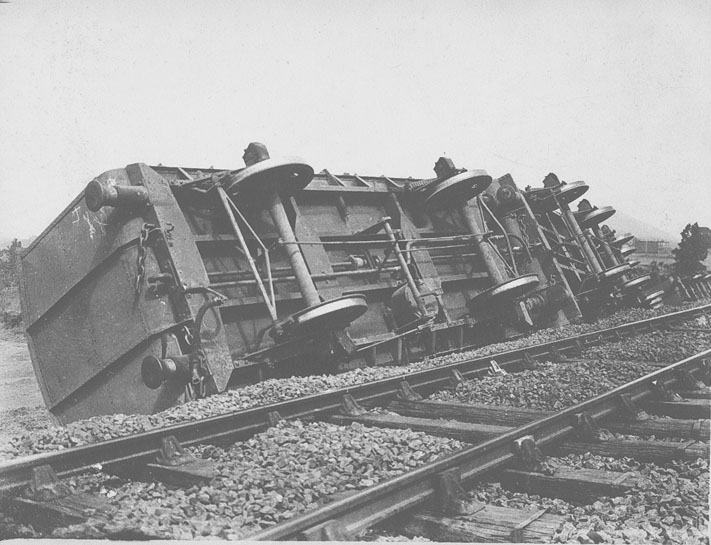
Everything was wrong
One of the train guards was wandering up and down politely calling out, ‘Are there any doctors on the train? Any doctors on the train at all? Any nurses? Nurses? Any nurses?’ He might almost have been asking for passengers to present their tickets. A dining car steward was sitting down at the side of the tracks, stiff, stunned, blood on his starched white jacket, and – the most extraordinary thing – a refreshment trolley perfectly upright beside him, the Nestlé chocolate bars scattered around his feet, still glistening in their bright wrappers, broken cups and saucers like fragments of some vast whole. I ran over towards him and placed the crying baby in his arms.
‘Sir!’ I said. ‘I need your help. Sir?’
He looked at me blankly.
‘You must go up to the station and look after the baby,’ I said. ‘Yes? Until the mother comes.’
He continued to look at me blankly.
I repeated myself: ‘You must take this baby and go up to the station. Do you understand? I need you to get up and take the baby with you up to the station, yes?’
He looked at me for what seemed like a long time but then nodded and I helped him up and he began walking slowly along the line towards the safety of the station.
‘Go to the station with the baby!’ I yelled at him again – he glanced back and nodded – and then I ran and plunged back down under the carriage to help the mother. Soon the flames from the other carriages would reach us.
She remained exactly where I had told her, in the corner of the carriage, entirely still now, and white, panic-stricken.
‘Your baby is OK,’ I said. ‘A steward has the baby up at the station. We’re going to get you up to the station.’
‘Where’s Lucy?’ she said.
‘I didn’t—’
‘I’m going to wait here for Lucy,’ she said.
‘You can’t wait here,’ I said. ‘We have to go.’
‘But Lucy will come and try to find me here!’ She pressed herself into the corner of the carriage.
‘No. Lucy’s a sensible girl, she’ll know what to do. She’ll know where to find you. Come with me. Come on.’
She shook her head.
‘Now!’ I shouted, and I grabbed first one arm and then the other. ‘Now!’ I repeated, and she hit out at me and screamed but I wrestled with her and dragged her down and down through the window and under the train and up into the infernal daylight. As we emerged, a guard came staggering towards us, a terrible cut across his skull, his face sheeted with blood.
‘Where’s my daughter?’ the woman yelled at him, as if he were personally responsible. ‘Where’s Lucy? And my baby? Where’s my baby?’ She grabbed at the poor man, but he was in no state to respond and he simply pushed her away and staggered on past, entirely lost and silent.
I held the woman’s arms firmly. ‘Look at me!’ I said. ‘Look at me!’ And I looked deeply into her eyes, willing her to be calm and to understand and I explained that her baby was with the dining car steward up at the station and I told her to go on ahead, and that I would find Lucy and bring her to her.
‘You promise that you’ll bring her to me?’ she said, heaving with tears.
I promised. I promised I would find Lucy.
I can remember to this day the look she gave me – trusting, fierce, her eyes wide – and I can remember that she then gave a little jolt of resignation or offence, I don’t know which, as if she had been pierced or branded. Then she turned and walked on, joining what was now a long stream of men, women and children passing alongside the burning train, many of them dragging their suitcases and belongings with them, some of them silent, others calling out for loved ones, or weeping and wailing, dishevelled and distraught. This is the end of the world, I thought: this is what it looks like.
A man somewhere close by was frantically yelling for help. I turned towards the sound and ran over to the noise. Our carriage was now in flames and the fire was encroaching on the next carriage: the man was yelling from inside. I clambered and pulled myself up and onto the carriage, using all my strength, and made my way across to the window, which was filthy – and shut. I could see terrified faces inside: the man with his wife and children were trapped beneath me. The maroon skin of the carriage was warped and already beginning to warm with flames. It was like looking down into a nightmare from a nightmare. I tried to open the window, pulling and tugging, but it was jammed where the walls of the carriage had buckled.
‘Stand back!’ I yelled. ‘Stand back.’
The family disappeared from the window and I stood and attacked it with my heel, stamping and stamping with all my weight until the glass had shattered, until all that was left was a jagged gap in the glass and I could kneel down and one by one managed to help pull them free. They scurried up and out and over the ruined train and hurried up the line towards the station.
I jumped down and away from the train, exhausted. I tried to take my bearings.
There to my left was the station sign, ‘APPLEBY STATION’, and there was the station, with its big tall cast-iron water column, and the signal box on up ahead, and the signals, and to the right there was another large building, emblazoned with the words ‘EXPRESS DAIRY COMPANY CREAMERY’, the letters bold in red, with a fading image of a milk bottle substituting for the ‘I’ in DAIRY. And there, incredibly, was the engine, which had somehow parted company from the train and become embedded in this vast building, in the Express Dairy Company Creamery, milk flooding everywhere, soaking into the ground, lying in pools – black milk – and the crimson engine sunk and drowning, choking and gurgling like some dying animal, hot steaming coals sizzling in the darkening liquid. The engine’s chimney had gone, and lying by the footplate I could make out the figure of a man – the fireman? The driver? – lying in a pool of liquid, his clothes smoking, his shovel next to him. Metal. Flames. Machinery disassembled. Like the devil’s foundry. It seemed incomprehensible. Surreal. The stuff of nightmares and dreams – hashish dreams and opium nightmares.
And then I remembered: where was Lucy?
‘Lucy! Lucy!’
I began searching. I yelled and yelled and yelled.

The first thing that Miriam and Morley heard, apparently, was my voice. They were nearly at the station themselves when the train crashed and Miriam had immediately pulled the Lagonda over and run down to the line, Morley close behind her, already making guesses and calculations as to the cause. By the time I saw them there were men everywhere with shovels and pickaxes and rope, clearing the carriages, and Morley was taking notes, Miriam assisting with the injured.
The hours that followed seem now like a blur. Men rushing with buckets to douse the flames, and then the fire engine arriving, and the ambulance, and finally the police. ‘Ah, potius mori quam foedari,’ muttered Morley, or something. We were herded together in the tiny waiting rooms at Appleby Station, rumours and theories beginning to spread as quickly as the flames from the engine: the train had run into a stationary goods vehicle; hundreds were dead; no one was dead; we had collided with an oncoming train. It was the driver’s fault; the fireman; the signalman; it was a natural disaster; an act of God; a robbery gone wrong. There were terrible injuries, and great shock and tears, but there was also laughter and jokes – the appalling, disgusting, incomprehensible contradictions of humans thrown together in a crowd, first class, third class, and everything in between. I remember the young nurse who dressed my wounds assuming that Miriam and I were married – ‘Your husband’s very brave, madam, people say he saved a lot of lives. He’s a good man’ – and Miriam shooting back, as sharp as you like, ‘First, he’s not my husband. Second, as for him being good or not – in any sense – I couldn’t possibly comment.’ I think that’s what she said. I think I remember the nurse saying that I had lost a lot of blood and that she wanted to take me to the hospital for treatment, and my refusing, and Miriam arguing with me, and … but, as I say, everything was a blur.
The only thing that remains clear is the moment I found Lucy.
She had been flung through the window of our carriage at the moment of impact.
If I hadn’t lifted her to look at the River Eden she would have been with her mother and baby brother, safely recovering in Appleby Station.
But she wasn’t. She was lying in a field, twenty yards or more away from the crash, entirely peaceful, her pinafore dress spotless and clean. Dead.

CHAPTER 5
WILD WEST APPLEBY
I THINK I’D KNOWN IT from the moment of the crash, but it was too difficult to comprehend. She looked so perfect. She looked unharmed. She lay on her back, looking up at the grey-blue sky. She could have been cloudwatching.
I don’t talk about it unless I’ve drunk a bit – a lot – and even then I don’t tell the full story. I never mention Lucy. I find ways to avoid it, to circumvent it, as I have always found ways to circumvent everything in my life. Finally writing it all down, I suppose, writing all this down, however feeble and forgettable it may seem, however anodyne and nostalgisome – one of Morley’s favourite words, one he’d invented, I assume – is just a way of reassuring myself that it all really happened, and that it really meant something, that everything was linked together, that it wasn’t nothing, and that it wasn’t waste, that she mattered, that we all mattered. Morley’s County Guides were designed as a bold celebration of England and Englishness: my recollections, I suppose, are some kind of minor, lower-case companion. If the County Guides are a scenic railway ride then my own work is the scene of the crash.
So, first we were gathered in Appleby Station, us survivors, our wounds tended in the waiting rooms, and a cup of tea for our troubles, and then we were escorted to various hotels in and around the town to give our statements and to be offered shelter for the night. We were billeted at the Tufton Arms Hotel, right in the centre of the town, down past some railwaymen’s cottages and across the River Eden. It was a short walk but it seemed like a long way, a desperate journey: some people in a hurry, some people going slowly; and many come to gawk at us; all of Appleby, it seemed, had come to find out about the crash. The police did their best to keep them away, but it was impossible to separate bystanders from survivors: we were all jammed together, shuffling forward as one. The only way you could tell the passengers from the locals was that the passengers all looked strangely alike, with that expression of surprise and horror from the moment when the crash had occurred.


